Marketing for the long-term and the short-term is a constant balancing act. Pressure to show immediate results can lead marketers to focus on quick-hit sales conversation tactics, which can look good temporarily in marketing dashboards, but are far less effective in the long-run.
Last year, Peter Fields and Les Binet published an IPA report on on marketing effectiveness that charted brand investment from 500 campaigns.
Fields and Binet reported that an ideal brand investment was a 60:40 split based on marketing effectiveness, with 60% of budgets focused on long-term brand building and 40% on short-term sales activation. In recent years, the scales have tipped, with marketers investing more than 50% in short-term activations. In the four years prior to 2016, campaigns focused on short-term sales activation spiked to 72%.
They found that short-term campaigns are twice as likely to generate large short-term sales spikes than long-term campaigns (which is why they are so appealing). However, only 3% of short-term cases generated large market share growth in the long-run, compared to 38% of 3+ year long-term campaigns.
This focus on short-termism is leading marketers astray.
Here’s how Peter Fields framed this dilemma in an editorial:
“The digital revolution means that we’re seeing a massive shift towards short term thinking in marketing. Instead of evaluations taking place over a year or more, which used to be the norm, people are increasingly looking back over weeks, days, perhaps even minutes.
“That is extremely damaging to effectiveness. We know (particularly when it comes to real-time evaluation) that it is leading brands to produce campaigns that maximize short-term effects. This, in turn, completely negates long-term success.
“What actually drives growth in the long-term is sustained commitment behind some kind of emotional association or message—or something that gets brands talked about. These are, in the vast majority of cases, not to do with timely offers or indeed new product functionality, but emotional platforms.
“And that is what will be sacrificed in the future—really powerful long-term branding.”
Here are a few related cartoons I’ve drawn over the years:
“CMO of the Month” October 2013
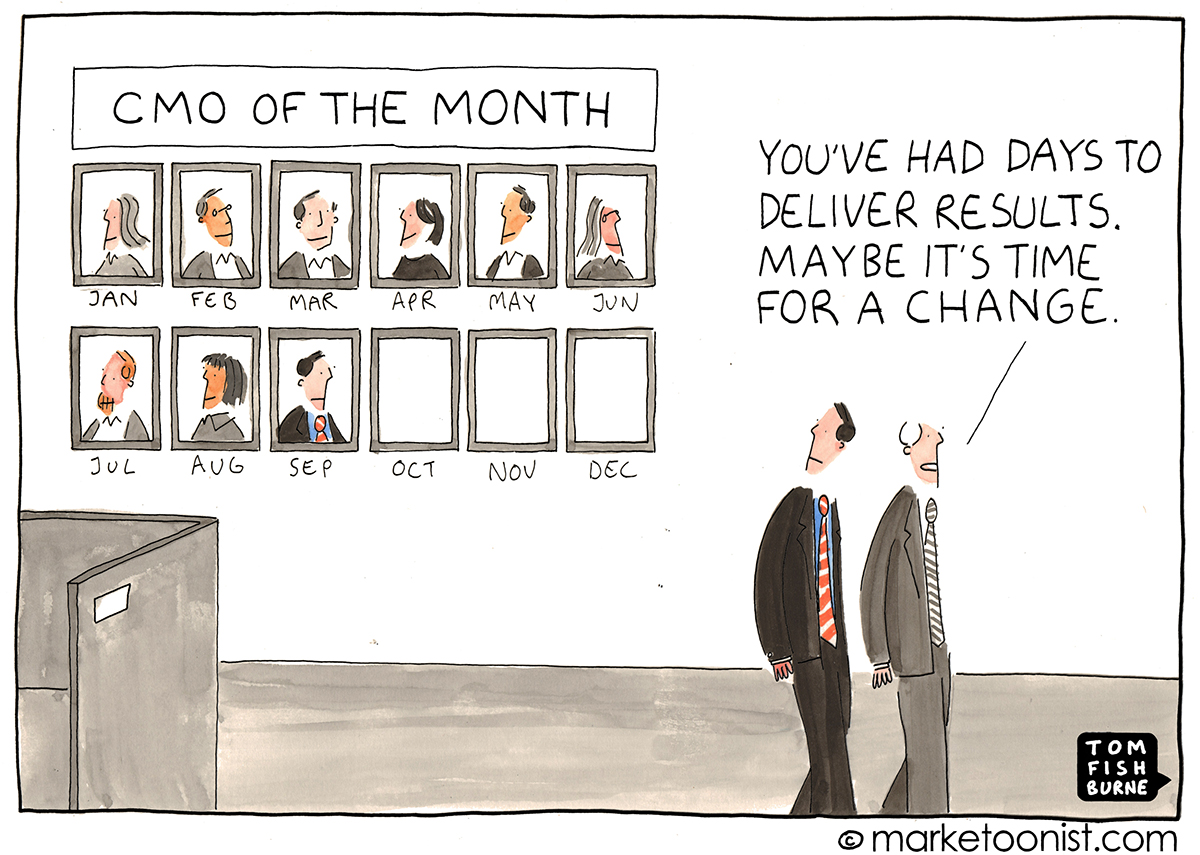
“Marketing Attribution” June 2017
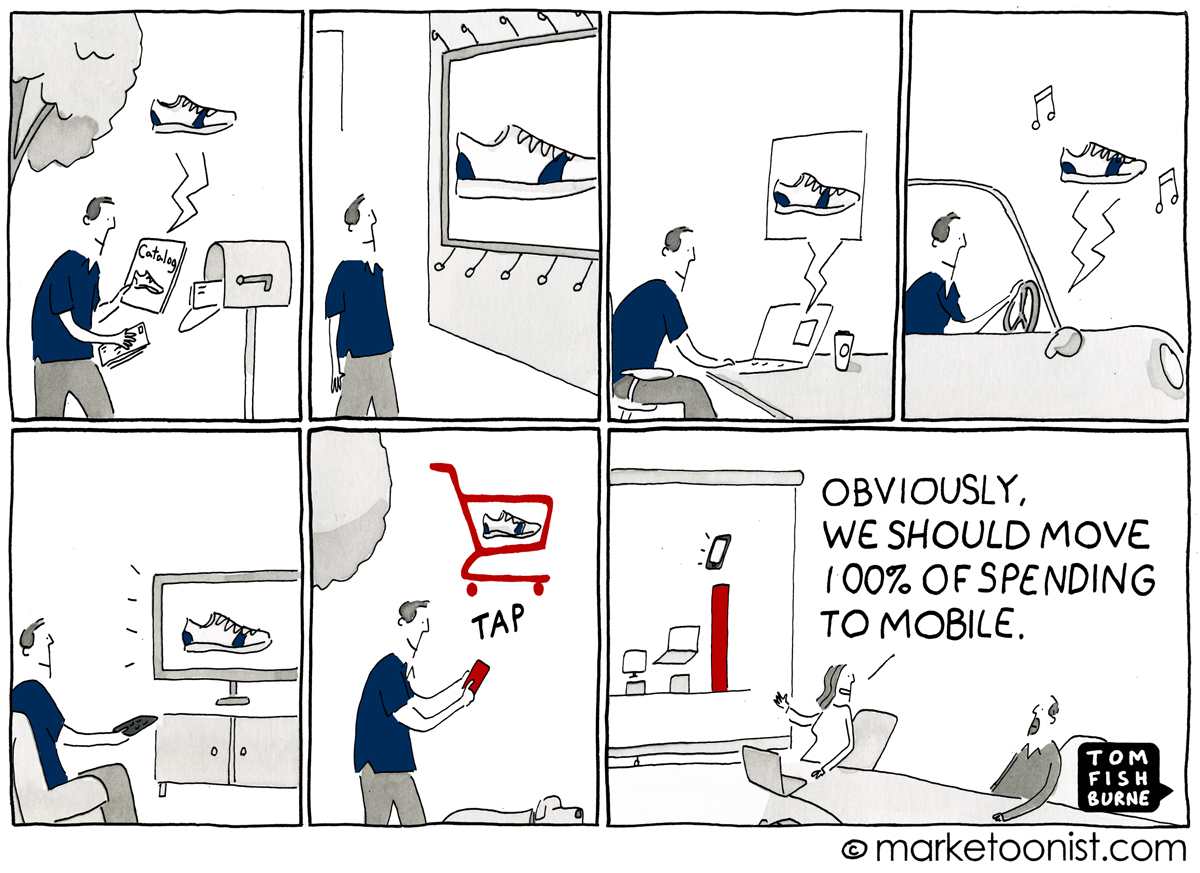
“Owning the P&L” September 2017
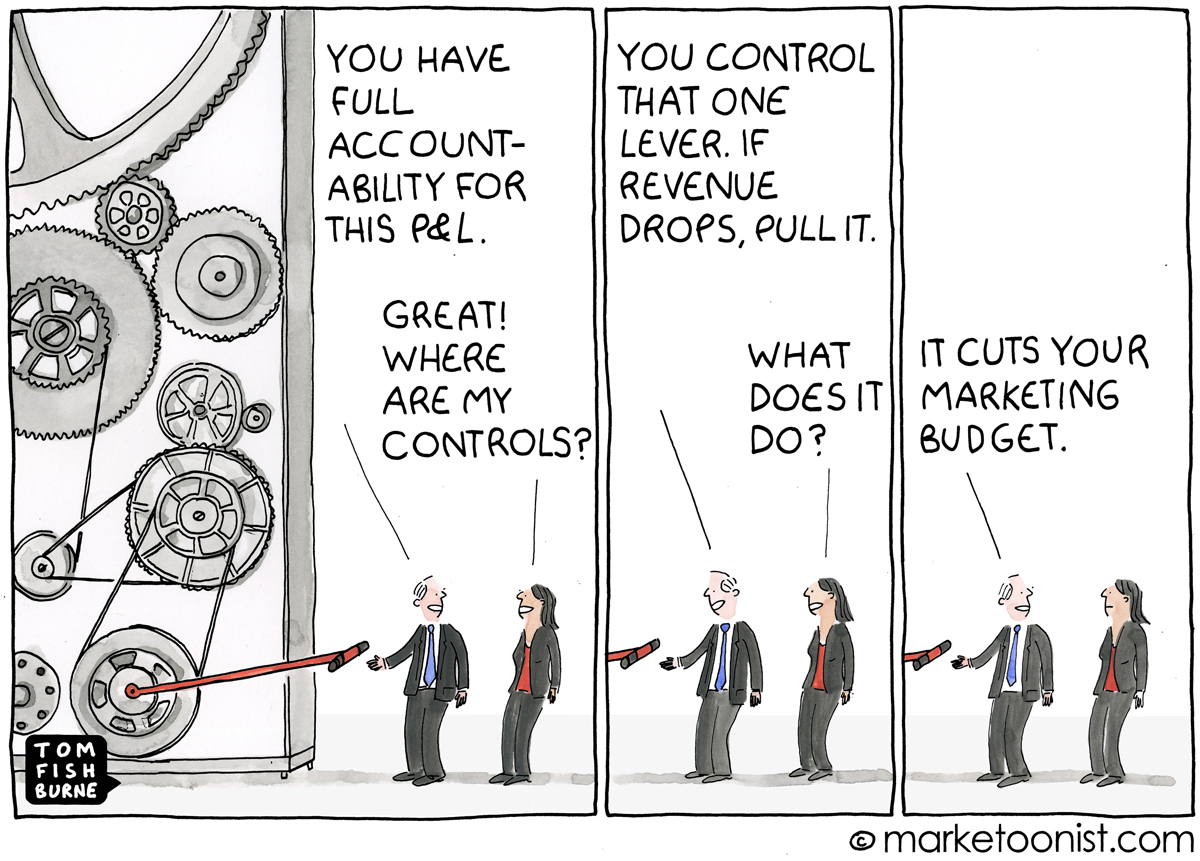
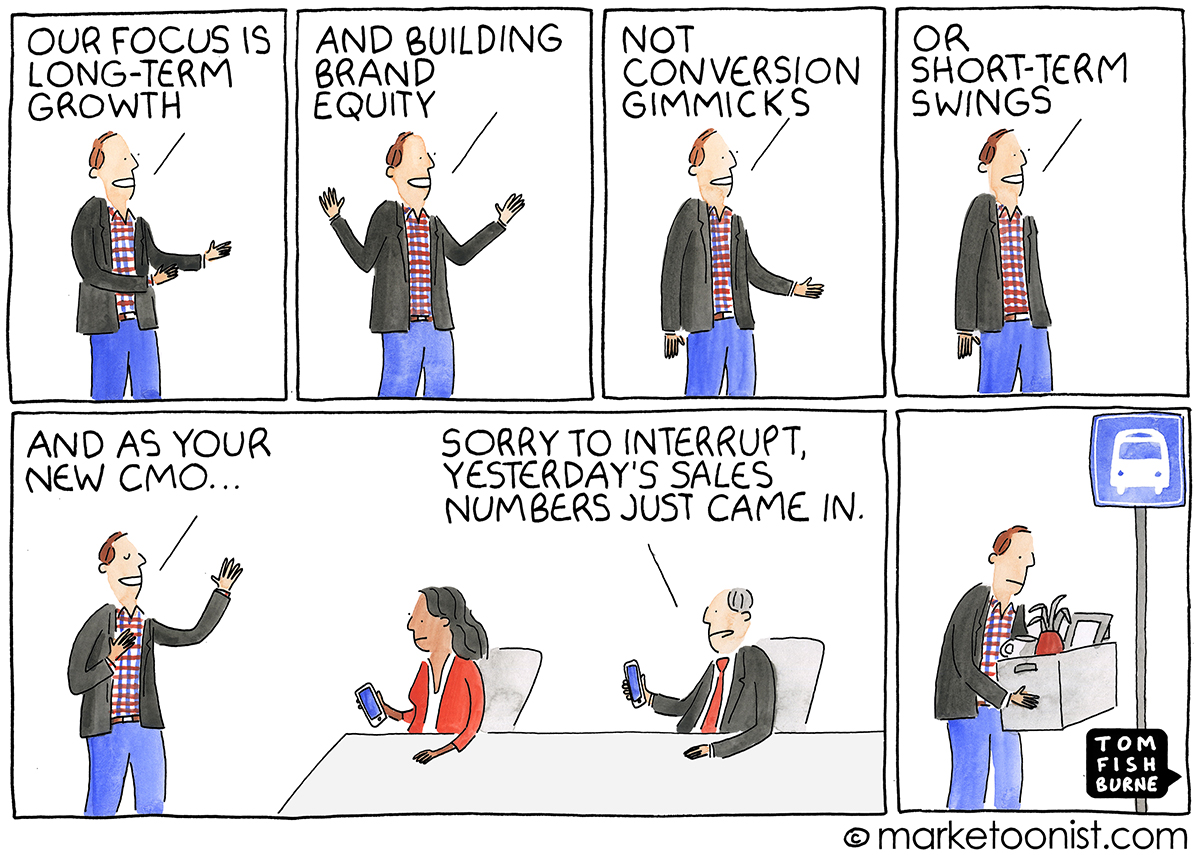

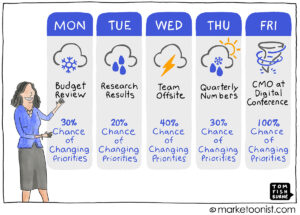
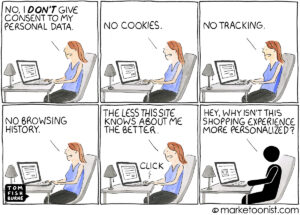
Ted Simon says
Brilliant and spot on, as usual, Tom. Your marketoon and Peter Fields’ editorial just nailed it. I only wish I had written this.
Allen Roberts says
The challenge is for marketers to devise robust ways to connect marketing investment to future revenue and margin.
While we remain the hostage of the accountants who look backwards, so are able to speak quantitatively, while we usually speak qualitatively, and often in cliches and fluff, (to our detriment) the situation will not change.
I agree with the commentary, and it is getting worse with the advent of digital tech which seems to have taken a place at the right hand of God.